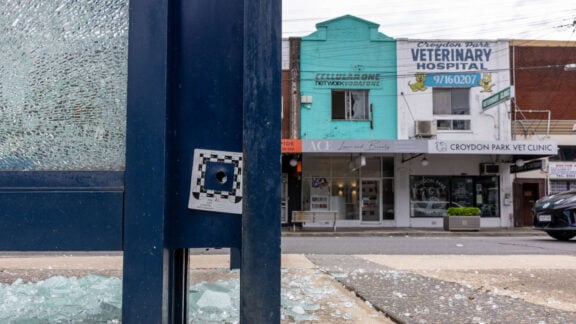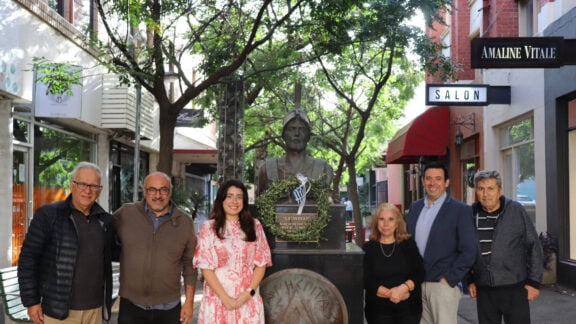“Culture is a costly project” says Greece’s Minister of Culture and Sports Lina Mendoni. This is especially true for Greece which has 6000 years of built and art heritage.
“Those in past governments who suggest that culture doesn’t need much money, have been found to be wrong,” the minister says.
Greece’s Ancient and Byzantine past are a universal inheritance, and the core of the nation’s identity and massive tourism industry.
Up to 35 million tourists visited Greece in 2022 after the last two years of global Covid lockdowns.
“In 2022 Greece enjoyed an incredible boost in tourism, first by Greeks of the Diaspora who returned after the pandemic forced two years of border closures, and a great increase of non-Greek visitors,” says Mendoni.
The New Democracy government she is part of, “believes that Greece is ready to welcome even more visitors.”
“Tourism and culture have systematically extended the tourism period beyond summer and to a large degree there are now hotel reservations across all of Greece to the end of the year,” Mendoni tells Neos Kosmos.
Culture at the forefront, from crises to renewal
Greece’s history since ancient times can be characterised as crisis and renewal. After the financial crisis of 2010-2016 Athens emerged as a new centre for contemporary and cutting-edge arts. An activist reaction to the economic collapse, past governments and historic political disfunction all provided a lease of new life for arts, culture, and a new start-up ethos. The last two years of the Covid pandemic lockdowns and border closures also added a fillip for new creativity and culture.
“The economic, and the pandemic crises, were catalysts for an explosion of contemporary creative developments of very high quality,” says Mendoni.
Mendoni believes that both contemporary and heritage culture “need lots of pores of support.”
“In Greece’s institutional framework, it has been legislated that the state through the Ministry of Culture, has the core responsibility to protect, maintain and promote Greece’s vast cultural inheritance, the minister emphasises.
“My ministry is concerned in the main with the maintenance of Greece’s cultural inheritance.”
Some in the Greek contemporary art scene (mainly in Athens) see a tension between contemporary and heritage culture when it comes to funding. I is not difficult to understand that cost of maintaining Greece’s heritage is exponential. New archaeological findings surface with regularity, and maintenance of existing sites is both costly and necessary.
However, Minister Mendoni sees no tension between heritage and contemporary arts support.
“The government facilitates the conditions for support, and funding for contemporary artists to express themselves freely, and present their works, in Greece and internationally.”
“The export of contemporary Greek culture and arts, outside the borders of Greece is something we want, and what we promote, however that also carries a significant cost.”
For Mendoni both heritage, and contemporary culture, need support “beyond what the state provides, and the programs of the European Union.”
“There needs to be a range of synergies with the various foundations in the private philanthropic sector, and for these institutions to partner with the state in the case of Greece’s cultural heritage, as well as with expressions of contemporary Greek culture, in the various areas such as theatre, cinema, dance, music and so on.”
Philanthropic institutions such as the Onassis Foundation, Benaki Museums, and Stavros Niarchos Foundation, stepped into the space to bolster contemporary and often in partnership with the state.
Mendoni is clear that the state must be at “arm’s length in its support for contemporary art.”
“We do not impose any kind of restrictions on contemporary artists; nor are we responsible for curation, or presentation of contemporary arts, as in the case of our cultural heritage, Ancient and Byzantine civilisation. The responsibilities we have as the ministry of culture are immense.”
A little retail therapy in Athens’ Ermou Street, may have you walk into a trendy clothes store only to find you’re standing on a thick glass floor looking down onto the remnants of a 750BC Mycenean village. Only 200 metres away you are met by a new Byzantine church from the 1600s, and a little while down the street there is the 2000-year-old keramikos market next to it. In less than three square kilometres over 5000 years of civilisation rubs shoulders with the bustle of Athens’ modern life.
Ancient cities, theatres, and other examples of Greece’s ancient past are being discovered almost daily.
Hellenes – the endless Diaspora
Hellenic civilisation extends beyond the Greek state. Rooted in Asia Minor (modern Turkey), we reach out to Indus (Pakistan and India) in the form of the Indo-Hellenic Empire, Ancient Pontos on the Black Sea, (Ukraine, Bulgaria, Turkey, Armenia,) and across to the Middle East.
“There are scientific research teams from our universities, and the ministry working with their peers in Lebanon, the Black Sea, in Bulgaria, in Israel and other places– there are archaeological missions, in which Greeks play a role, and the ministry invests financially to support these missions.”
Earlier this year Mendoni shepherded an exhibition from the National Archaeological Museum to Museum Victoria titled, Open Horizons: Ancient Greek Journeys and Connections which linked Greeks’ ancient and continuous diasporic journeys from the Black Sea to Egypt and in the 20th Century, Australia. The project was a collaborative one between the Victorian and Greek governments, the Greek Community of Melbourne, the Victorian Museum, and the National Archaeological Museum in Athens.
The culture minister is ardent about building more links between Greece and its Diaspora.
She was impressed with the collaboration with Museum Victoria and says that the exhibition was of major significance.
“Our exhibition at Museum Victoria was of particular importance to us, it confirmed the love and the passion towards Hellenic civilisation, not only from the Diaspora but also the general Australian public.”
Nexus between tourism and culture
Greece’s tourism, and culture are seamlessly bound together says Mendoni.
“Tourism is linked to culture and civilisation and under my aegis, we now have ancient sites and museums open for longer hours – so visitors can attend sites without time constraints.”
Mendoni’s mission is to see more archaeological sites and museums “open for longer and for them to be accessible to those over 65-years-old and those with mobility challenges.”
“We are aware of the silver economy – as well as those of our citizens, and visitors who have mobility challenges.”
“I was heartened to know of young couples, with young children in pushers, who visited the Acropolis because of the new lifts and special pathways we have built, as well as for those visitors those with mobility issues.”
Greece’s digital transformation is moving at breakneck speed. The minister extols digitised ticketing across all archaeological sites “which means visitors do not have to wait to purchase a ticket on-site.”
Mendoni is more than a minister, her academic qualifications are Classical Philology and History and Archaeology from the University of Athens, she then attended a pre-doctoral course at Maison de l’Orient in Lyon and was later awarded her PhD in Archaeology cum laude by the University of Athens. As if that is not enough, she received a scholarship from the British Archaeological School at Athens for a post-doctoral study on ancient Greek onomastics in Oxford and still maintains a position as a senior researcher at the Institute of Historical Research of the National Hellenic Research Foundation.
Culture bridges between Australia and Greece
Australia’s First Nations’ art was an epiphany for the minister of culture. Mendoni is now committed to presenting the work of Indigenous artists in Greece.
“I want to have First Nation’s art in Greece, I was overwhelmed by its power, and its beauty, also the way it seems to have a visual relationship to ancient Mycenean art. I felt the depth of First Nations’ and how it impacts on contemporary forms.”
Minister Mendoni is committed to seeing Greek civilisation – ancient and Byzantine – represented across Australia.
“Greek civilisation is not only for the Diaspora, but for all Australians who love not only ancient and contemporary Greece.”
The minister stresses the “steady working relationship with the museums in Melbourne.” When she was in Melbourne earlier this year she agreed on a Memorandum of Understanding with the Victorian government, and her department are currently preparing the draft.
“There have also been discussions with our peers in Australia about the exchange of contemporary culture,” Mendoni adds.
Mendoni is keenly aware that Greece’s cultural heritage is at the centre of the nation’s soft power. The culture bridge can be used to link Greece to its neighbours in the Middle East, Asia, and Europe, as well as to North America and Australia.
The relations she has forged through culture with Greece’s Diaspora is of critical importance to the nation, as it navigates its future in often tumultuous Eastern Mediterranean geo-political waters.









